Sherman's March – General Sherman's Union troops marched through Georgia from Atlanta to Savannah, laying waste to Confederate war supplies and railroads
Think of a Sherman tank marching (Sherman's March), ripping a wide section of earth all the way to Savannah.
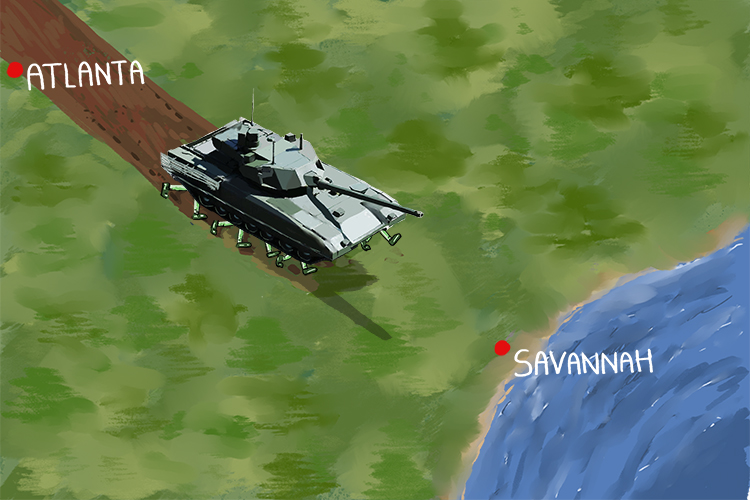
NOTE:
There were no tanks in the American Civil War but this is a useful mnemonic to realise the destruction caused.
The cities are easy to remember because we have a Savannah.

and we have an Atlantic Ocean.
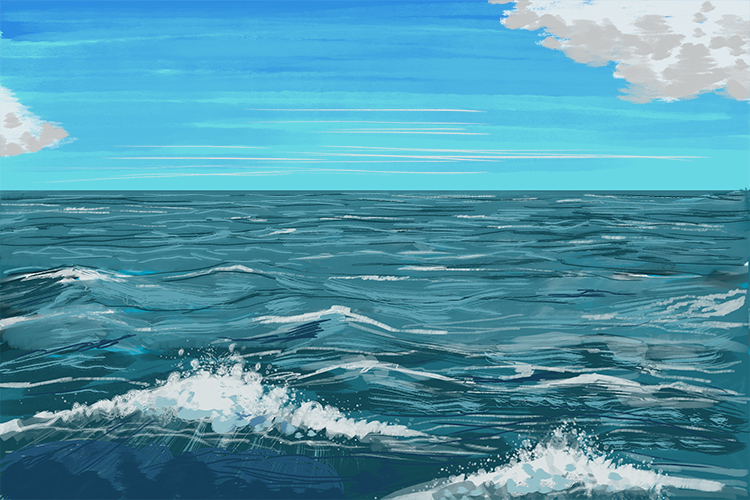
But what is odd is that you would think Atlanta city would be near the Atlantic Ocean and Savannah would be deep inland, as:
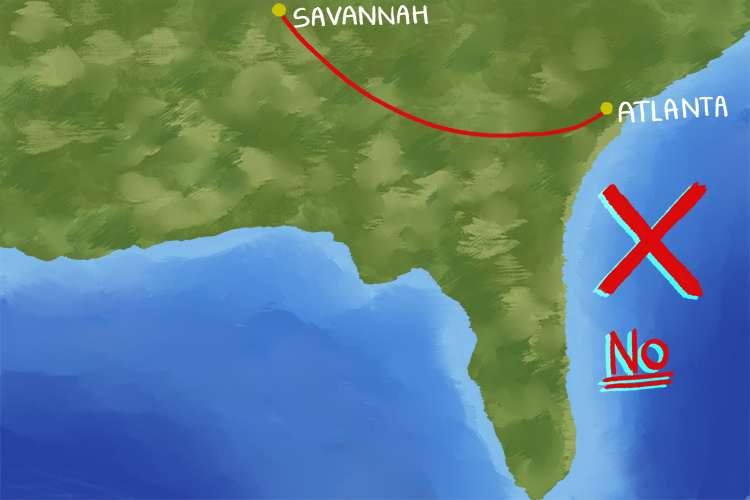
In fact, Atlanta city is deep inland and Savannah is by the Atlantic Ocean.
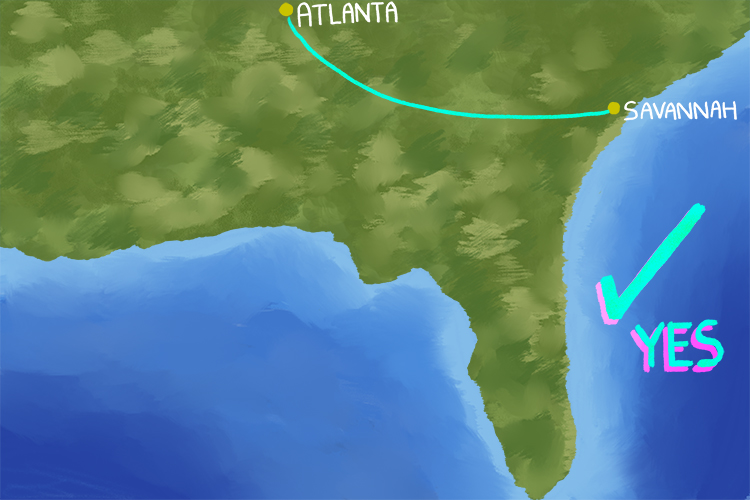
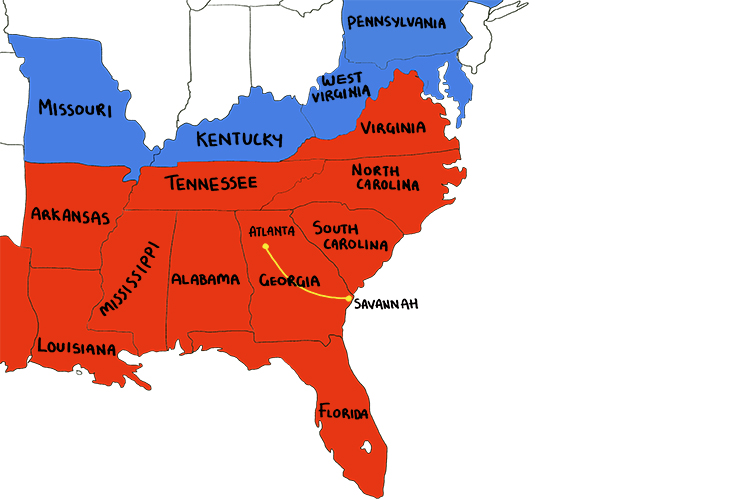
General William Tecumseh Sherman was a Union army general in the American Civil War. His name will forever be synonymous with the march by Union troops through Georgia and North and South Carolina towards the end of the American Civil War.
In May 1864, after amassing a force of about 100,000 troops near Chattanooga, Tennessee, Sherman began an invasion of Georgia. Opposing Confederate troops retreated and Sherman's force took over Atlanta, which was a vital industrial centre and the major hub of the Southern railway network.
The Union's greater manpower was now beginning to prove itself. Sherman took 62,000 of his troops on a "March to the Sea" from Atlanta, about 250 miles inland, to the port of Savannah on the Atlantic coast.
Sherman's army cut a wide passage through Georgia. The troops were completely isolated from their supply bases and other Union forces and lived off the land.
They destroyed railroads and supply materials, dramatically reducing the war-making capabilities of the Confederates.
After taking Savannah, Sherman and his troops headed north through the Carolinas towards Virginia. By this stage, the Confederates could offer only token resistance.
Interesting fact: Sherman's March to the Sea is regarded as the first example of total war – military conflict in which the contenders will make any sacrifice in lives and other resources to secure a victory (as opposed to limited war, in which the weapons used or the objectives pursued are restricted in some way.)




